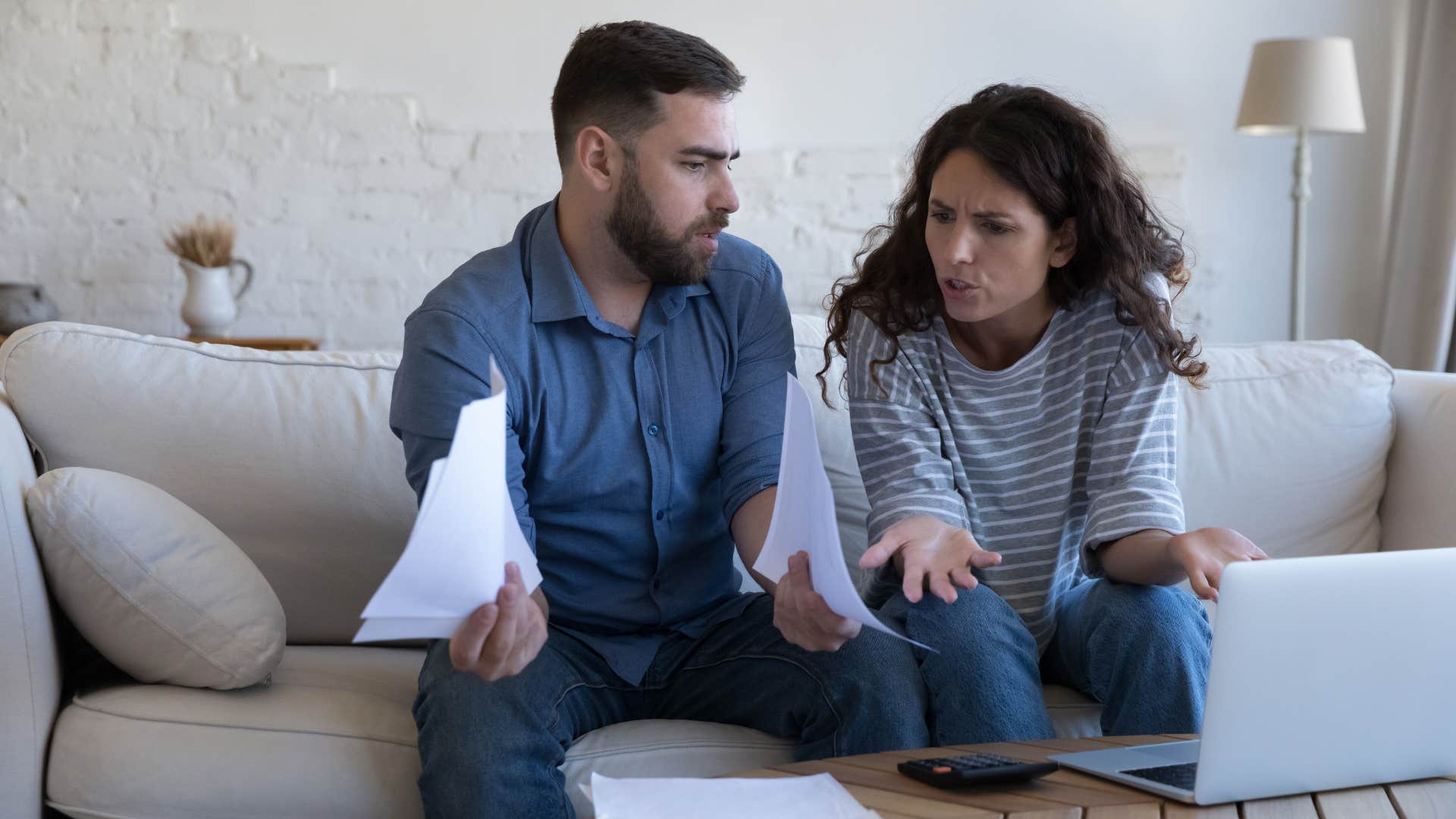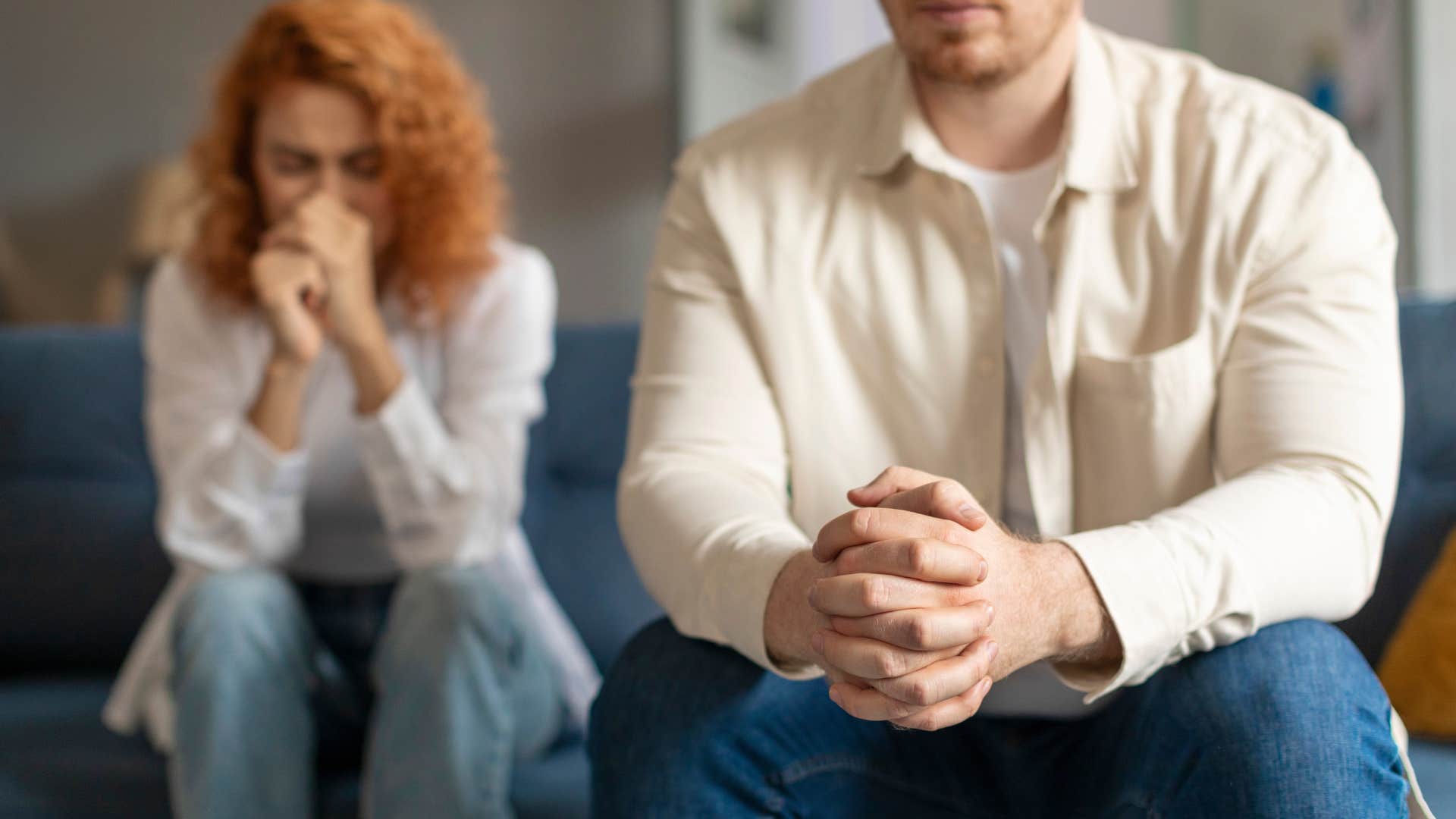If A Person Has These 6 Qualities, Psychology Says They're One Of The Bad Ones
Sometimes a person like this is subtle, but still incredibly dangerous.
 Alexey Demidov | Unsplash
Alexey Demidov | Unsplash Most people are fundamentally good, striving to build meaningful relationships and contribute positively to the world around them. But research has identified certain patterns of behavior and thinking that consistently predict harmful behavior toward other people.
Awareness can be especially valuable for anyone who tends to see the best in people or struggles with boundary-setting. Understanding these warning signs is about becoming wisely discerning in a world where protecting your peace and safety sometimes requires recognizing uncomfortable truths.
If a person has these 6 qualities, psychology says they're one of the bad ones:
1. They're pushy
 Antonio Guillem / Shutterstock
Antonio Guillem / Shutterstock
One of the signs of an abusive relationship forming before it has really started is that the other party will push for things to move more quickly than normal. This type of person will behave intensely from the beginning; they may move extra quickly in trying to spend the night with you or even suggest you move in together shortly after you begin dating.
Research supports that a pushy partner, disregarding your needs and boundaries, can indicate a dysfunctional dynamic. This push-pull dynamic, characterized by inconsistent behavior and emotional inconsistency, can create an unhealthy cycle that erodes trust and intimacy, making a secure and fulfilling connection difficult to establish and maintain.
If you are unsettled with the swift pace at which they are moving, this is likely a warning sign.
2. They're jealous
 Krakenimages.com / Shutterstock
Krakenimages.com / Shutterstock
An abusive person will make it clear early on that they have a jealous streak, far beyond what is healthy. This will only escalate, and it may include relationships from your past that are long over.
There may also be stalking-type behaviors, such as watching your house, checking your phone, and asking about social media posts. Extreme jealousy is not healthy, and it is a sign of many other issues.
While jealousy can sometimes stem from low self-esteem or a fear of abandonment, it can also lead to destructive relationship patterns like obsessive checking of a partner's phone. Research has found that it can also prompt negative self-reflection or a desire to improve oneself in certain situations.
3. They're controlling
 fizkes / Shutterstock
fizkes / Shutterstock
The abuser will often want to control all aspects of money, even if they do not make their own. They may expect you to foot the bill for everything; yet, when you want to spend money on something, they may control it or simply forbid the purchase altogether.
This control will eventually extend to other areas of the relationship and life as well. Research shows that control is a form of emotional abuse and a significant predictor of domestic violence. This is because it creates confusion and dependency and may lead to a partner feeling trapped and powerless.
4. They're isolating
 fast-stock / Shutterstock
fast-stock / Shutterstock
Another sign of an abusive relationship is that the abuser will want you to spend less and less time with family and friends, eventually cutting you off from these people completely. The more your family and friends point out these behaviors, the more likely your partner will try to control your behaviors and actions.
At an individual level, chronic loneliness from isolation can lead to a negative bias in perceiving a partner's regard and care. A 2013 study explained that a lack of external social ties means less support for the relationship, making couples more vulnerable to stress and instability.
5. They're blame-shifting
 Drazen Zigic / Shutterstock
Drazen Zigic / Shutterstock
An abuser will always blame others for his or her actions, never accepting responsibility for what they have actually caused. This is especially true for run-ins with people in public, and even when they fall into trouble with law enforcement.
Stories they tell you from any time in their lives will blame everyone else involved for whatever has happened; they’ll often complain that people are out to get them and to take advantage of them. This will be the case in all areas, and it will include all the times that they were actually at fault.
6. They're gaslighting
 fizkes / Shutterstock
fizkes / Shutterstock
Finally, another sign of an abusive relationship is called “gaslighting.” This is basically a mind control method where the abuser confuses the victim by leading them to believe that everything is their fault, and that if the victim would just change and do things the way the abuser wants them done, then everything would be better.
Not only is this untrue, but it also sets the precedent for more control and mental and emotional abuse; sadly, these forms of control will often lead to physical abuse.
Unclear communication leaves one partner questioning their own perceptions, fostering insecurity and emotional distance. One study explained that the brain naturally seeks certainty, and a persistently confusing situation creates somethingg that disrupts emotional processing. This can leave an individual feeling emotionally stuck and unable to move forward.
That said, just because someone does not hit you does not mean that you are not being abused. If some or all of these signs of an abusive relationship are present in your current relationship or one that you are considering, then you need to make plans to end this now.
MeetMindful is a dating site and app for singles interested in mindful living, focusing on personal growth, spirituality, healthy living, and authentic, meaningful connections rather than casual hookups.

